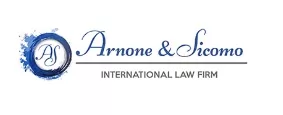- with readers working within the Property industries
- within Intellectual Property, Real Estate and Construction and Insurance topic(s)
What's a REIT?
REIT: Is an acronym for "Real Estate Investment Trust," better known as società di investimento immobiliare quotata (SIIQ) in Italy, is a company that owns and manages real estate properties, financing their construction.
In other words, a REIT owns multiple properties aimed at generating income. Mostly, these are hotels or shopping centers.
Generally, a REIT outsources the management of the owned properties to third parties in exchange for rental income. There are also REITs that finance real estate transactions, generating revenue through interest on the financing.
REIT and SIIQ: what are the differences
Although there are minor differences, SIIQs differ from REITs, which originated in the USA around the 1960s, aiming to allow retail investors to access real estate opportunities.
In summary, REITs differ from SIIQs in:
- Profit Distribution Model: REITs distribute 90% of their profits to investors in the form of dividends, a feature completely absent in SIIQs.
- Legal Structure.
To operate as a Società di Investimento Immobiliare Quotata (SIIQ) in Italy, the following criteria must be met:
1. Real estate assets must constitute 80% of total assets.
2. At least 80% of total revenues must derive from leasing real estate properties.
3. Must be incorporated as a joint-stock company.
4. Must have its registered office in Italy.
5. Must list shares on regulated markets.
6. No shareholder can hold more than 51% of voting rights in the ordinary assembly and more than 51% of profit-sharing rights.
7. At least 35% of shares must be held by shareholders who do not own more than 1% of profit-sharing rights.
These criteria outline the specific requirements for SIIQs to operate in Italy, ensuring compliance with local regulatory and market conditions while focusing on real estate investment activities.
What are the SIIQ requirements?
The SIIQ requirements can be categorized as follows:
- Subjective Requirements: The company must be incorporated as a joint-stock company, have its registered office in Italy or another EU state, and its shares must be traded on regulated markets.
- Statutory Requirements: These include rules on investments, limits on risk concentration in investments and counterparties, and maximum leverage (both group and individual).
- Participatory Requirements: These involve control and float requirements.
- Objective Requirements: These include the predominant activity of leasing real estate, obligation to distribute 70% of net income derived from leasing activities and shareholdings to shareholders, and requirement to distribute 50% of capital gains realized within two years from real estate leasing and holdings in SIIQs, SIINQs, and qualified real estate funds.
These criteria outline the necessary conditions for a company to qualify as a Società di Investimento Immobiliare Quotata (SIIQ) in Italy, ensuring adherence to regulatory standards and investor protection measures.
Which is the taxation of SIIQ?
Dividends distributed by SIIQs are taxed by transparency on the member of the simple company.
In other words, the activities are differentiated according to their origin, i.e. real estate or not, in order to identify those to be subject to full taxation or to a mere exclusion.
The principle of transparency, the latter mentioned, which finds concreteness in Article 32 quater of Legislative Decree 124/2019.
The provision of upstream taxation, or rather different depending on the tax qualification of the member, has resolved the problems previously arising from double economic taxation.
For dividends distributed to simple companies, a different income attribution regime has been provided. More specifically, the taxable income is attributed to the members by applying the criteria provided for the category of taxpayer to which the subsidiary company belongs. Differently, the article mentioned above (art. 32 quater of DL 124/2019), determines the taxable portion of the dividends distributed to the simple company by applying the rules specific to the members to whom the dividend will be attributed for transparency.
Furthermore, the transparency regime envisaged for the tax regime of listed real estate investment companies is even more different, for which the members are not attributed the taxable income but the civil profit associated with it.
The discipline dictated for SIIQs is limited to foreign EU and EEA entities that produce business income in Italy through permanent establishments.
The content of this article is intended to provide a general guide to the subject matter. Specialist advice should be sought about your specific circumstances.


